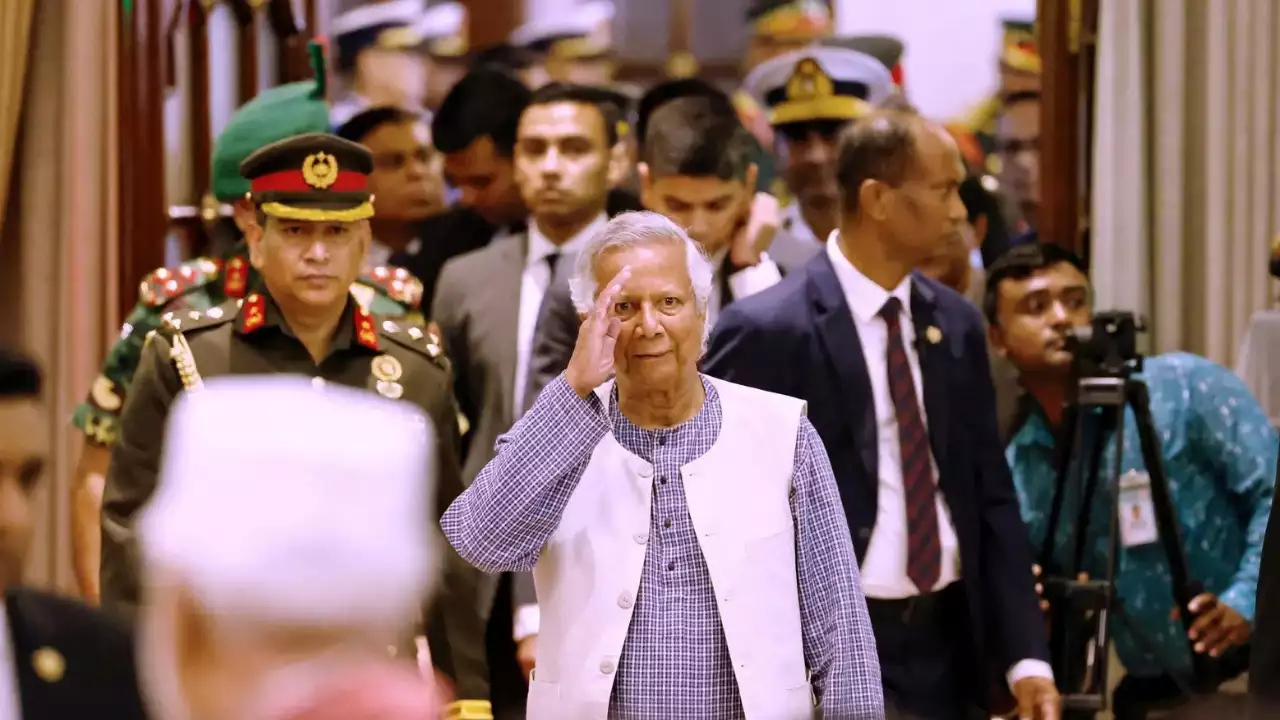Bangladesh’s interim leader and Nobel Peace Prize winner, Muhammad Yunus, said Tuesday he will not establish a specific time frame for elections after the ouster of his autocratic predecessor, Sheikh Hasina. In an interview published today, Yunus underscored that critical reforms must occur before any elections are held to restore democratic integrity in the country.
Yunus, appointed Bangladesh’s “chief advisor” after a street revolt led by students against ex-premier Sheikh Hasina in August, has the task of running a caretaker government. At 84 years old, the veteran lender to the poor has termed the restoration of democratic institutions “practically very tough” but believes this is needed for the country’s future.
“None of us aim to stay for a prolonged time,” Yunus told the *Prothom Alo* newspaper in an interview. “Reforms are pivotal. If you say, hold the election, we are ready to hold the election. But it would be wrong to hold the election first.”
Yunus further announced that elections would only help risk a comeback of the autocratic practices that characterised the 15-year term of Bangladesh’s current Bangladeshi Prime Minister, Hasina. The administration had been accused of massive human rights violations, mass-scale detentions, extrajudicial killings, and their orchestration of rigged elections.
The weeks before the ouster of Hasina were said to have claimed over 600 lives, according to a preliminary report from the United Nations. However, the report again struck a note of doubt, surmising the death toll may have been higher. The politicisation of the courts and civil service was what characterised Hasina’s government as well as her ouster and undermined democratic checks and balances.
He has inherited what he called a “completely broken down” system of public administration, which he believes calls for a whole-scale overhaul before anything else can move ahead. “Reforms mean we will not allow a repetition of what happened in the past,” he said, adding that structural changes are needed to prevent a relapse into autocracy.
Yunus has also faced criticism over the arrest of several politicians, high-ranking police officials, and other supporters of the Hasina regime who have been booked for murder after her removal. Critics argue these arrests would lead to politicised trials to target the erstwhile regime’s supporters.
However, Yunus insisted that the criminal proceedings initiated under his administration would remain free from political interference. “Once the judicial system is reformed, then the issues will come forward about who will be placed on trial, how justice will be carried out,” he said, asserting that the trials would be impartial and based on the rule of law.
The caretaker leader also spoke about media freedom. More than 25 journalists have been arrested since her overthrow and are believed to have committed atrocities against protesters and collaborated with Hasina’s government. Reporters Without Borders, a media freedom watchdog, has labelled the arrests as “systematic judicial harassment.”
In response to the criticism, Yunus assured the public he was committed to press freedom. “Write as you please,” he told the Prothom Alo. “Criticize. Unless you write, how will we know what is happening or not happening?”
Yunus’s position reflects a broader vision of a reformed Bangladesh, strength for democratic institutions, and the absence of political persecution. As the country waits with bated breath for the next steps in its political transition, Yunus persists in reforms before the election process that will provide Bangladesh with a more just and democratic future.















